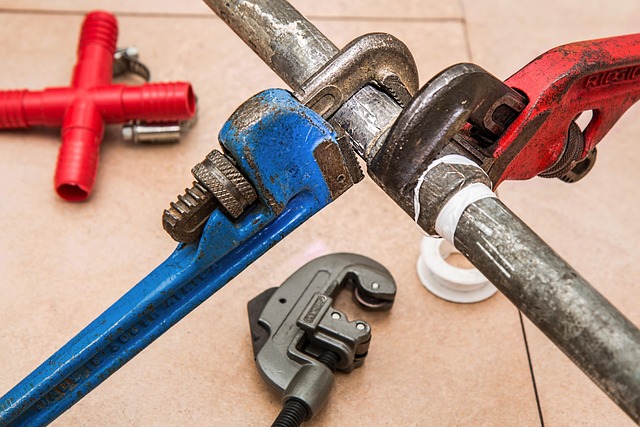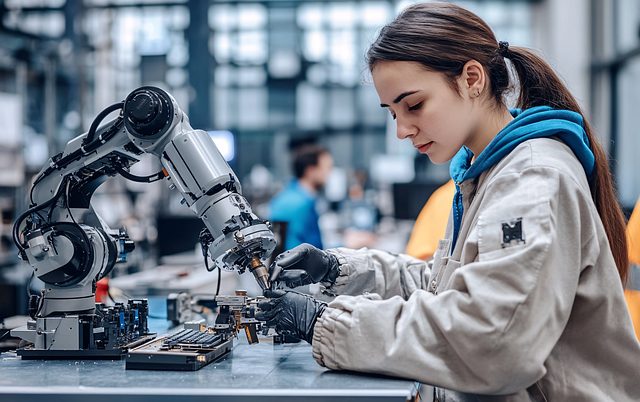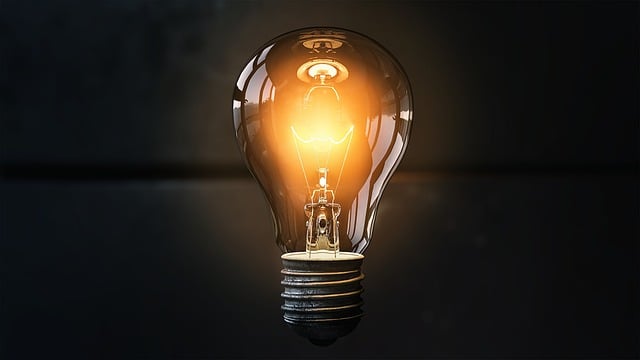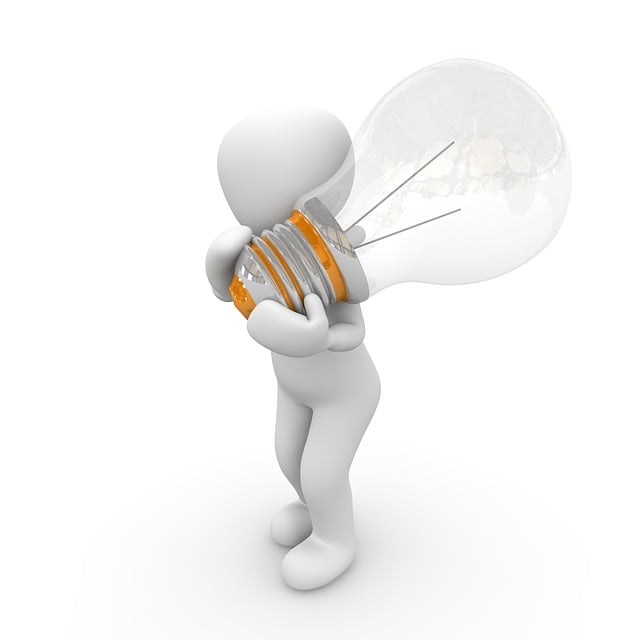Modern plumbing technologies are revolutionizing water conservation with smart water detectors monitoring soil moisture for precise irrigation, tankless heaters providing on-demand hot water, advanced water filtration systems ensuring clean water quality, and trenchless repairs fixing pipes without excavation. Digital controls enable remote optimization of water usage during peak seasons or extreme weather events. Integrating these innovations fosters sustainability, reduces energy consumption, minimizes landscape disruptions, and conserves both water and energy resources in residential and commercial settings.
In today’s era of escalating water scarcity and environmental awareness, efficient irrigation practices are vital for sustainable landscapes. Plumbing technologies play a pivotal role in driving water conservation, with smart irrigation systems emerging as game-changers. This article explores various innovative solutions, from the integration of smart water detectors to enhance precision watering, to tankless heaters reducing waste, and trenchless repair methods minimizing disruption. Additionally, digital controls are transforming irrigation management, ensuring optimal efficiency.
- Plumbing Technologies Driving Water Conservation: A Brief Overview
- The Role of Smart Water Detectors in Efficient Irrigation
- Tankless Heaters: Reducing Water Waste and Energy Consumption
- Water Filtration Systems for Cleaner, More Sustainable Irrigation
- Trenchless Repairs: Minimizing Disruption, Maximizing Efficiency
- Digital Controls Transforming Irrigation Management Practices
Plumbing Technologies Driving Water Conservation: A Brief Overview

Modern plumbing technologies are driving significant advancements in water conservation efforts. One notable innovation is the integration of smart water detectors and digital controls into irrigation systems. These advanced tools allow for precise monitoring and management of water usage, ensuring every drop is utilized efficiently. For instance, smart sensors can detect soil moisture levels, adjusting irrigation schedules accordingly to prevent over-watering and reduce water waste.
Additionally, tankless heaters and improved water filtration systems are making significant contributions. Tankless heaters, for example, provide hot water on demand, eliminating the need for energy-intensive storage tanks and significantly reducing water wastage. Meanwhile, advanced water filtration technologies not only improve the quality of water but also reduce the need for frequent replacement, minimizing both water and energy consumption associated with traditional filtering methods. Trenchless repairs are another sustainable approach, allowing for quick and efficient fixes to pipes without excavation, thus saving water and preserving landscapes.
The Role of Smart Water Detectors in Efficient Irrigation

Smart water detectors play a pivotal role in enhancing irrigation efficiency and promoting water conservation. These advanced devices are designed to monitor soil moisture levels, ensuring that plants receive precisely the right amount of water they need. By integrating digital controls and real-time data analysis, these detectors eliminate overwatering—a common issue with traditional irrigation systems. This not only reduces water wastage but also fosters healthier plant growth by maintaining optimal soil hydration.
Incorporating smart water detectors into plumbing technologies further aligns with the broader trend of tankless heaters and advanced water filtration systems. These components collectively contribute to a more sustainable and eco-friendly approach to irrigation. Moreover, digital controls facilitate remote monitoring and adjustments, making it easier for homeowners and managers to optimize water usage, especially during peak seasons or extreme weather events. This technology also supports trenchless repairs, minimizing disruptions to landscapes while enhancing overall system longevity.
Tankless Heaters: Reducing Water Waste and Energy Consumption

Tankless heaters are revolutionizing the way we approach plumbing technologies and water conservation. Unlike traditional systems that rely on storing hot water in tanks, tankless heaters provide hot water on demand, eliminating the need for constant heating and significant water waste. By integrating smart water detectors and digital controls, these innovative devices can precisely regulate water usage, ensuring every drop is utilized efficiently.
This technology not only reduces energy consumption but also extends the lifespan of appliances by minimizing exposure to fluctuating temperatures. Moreover, tankless heaters complement other plumbing innovations like trenchless repairs and advanced water filtration systems, contributing to a more sustainable and cost-effective approach to home or commercial property management.
Water Filtration Systems for Cleaner, More Sustainable Irrigation

Advanced plumbing technologies play a pivotal role in modern irrigation systems, promoting sustainable practices. One such innovation is the integration of water filtration processes. These systems ensure that water used for irrigation is clean and free from contaminants, leading to healthier plants and reduced environmental impact. By employing cutting-edge filtration techniques, farmers and urban gardeners can access pure water sources, enhancing overall efficiency.
Smart water detectors and tankless heaters further enhance this sustainability. Detectors monitor moisture levels in the soil, triggering irrigation only when necessary, thus conserving water. Tankless heaters provide on-demand hot water, eliminating waste associated with traditional storage tanks. Combined with digital controls that allow for precise programming and remote monitoring, these technologies make irrigation more efficient and environmentally friendly. Trenchless repairs also contribute to this sustainability by minimizing disruptions to the landscape and reducing the need for extensive excavation.
Trenchless Repairs: Minimizing Disruption, Maximizing Efficiency

Trenchless repairs are revolutionizing the way we maintain plumbing infrastructures while promoting sustainable water conservation practices. Traditional excavation methods for repairing leaks or replacing pipes can disrupt landscapes, cause temporary road closures, and result in significant water wastage during the repair process. In contrast, trenchless repairs offer a non-invasive approach, eliminating the need for extensive digging. This innovative technology utilizes advanced tools such as high-pressure water jets, fiber optics, and robotic cameras to identify and fix issues within existing pipes without disturbing the surrounding area.
By embracing trenchless repairs, smart irrigation systems can maximize efficiency and minimize disruption. Digital controls and smart water detectors can be integrated into these systems to monitor and optimize water usage. Tankless heaters, coupled with effective water filtration methods, ensure that the water supply remains clean and efficient. This holistic approach to plumbing technologies not only conserves water but also reduces costs, enhances landscape aesthetics, and fosters a more sustainable future.
Digital Controls Transforming Irrigation Management Practices

In the realm of plumbing technologies, digital controls are revolutionizing irrigation management practices, offering a game-changer solution for water conservation. Traditional irrigation systems often rely on set schedules and fixed settings, leading to inefficient water use—a significant concern given today’s pressing environmental challenges. However, with the integration of smart water detectors and digital controls, this is changing dramatically. These advanced plumbing technologies enable precise water delivery, ensuring every drop counts. Smart water detectors can monitor soil moisture levels, weather conditions, and plant water needs, adjusting irrigation schedules accordingly to avoid over- or under-saturation.
This transformation goes beyond simple water conservation; it encompasses a range of innovative features. Tankless heaters, for instance, provide on-demand hot water for irrigation, eliminating waste associated with holding tanks. Additionally, water filtration systems ensure the water used for plants is clean and healthy, promoting plant growth without excessive chemical use. Trenchless repairs further enhance sustainability by minimizing excavation, reducing environmental disruption, and saving time and money. Together, these digital controls and modern plumbing technologies are fostering a more sustainable future, one efficient irrigation practice at a time.
